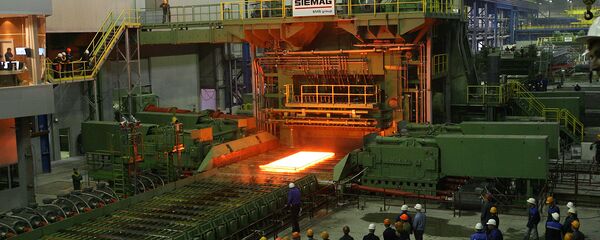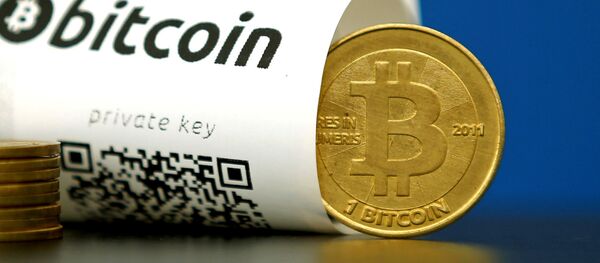During his election campaign, US President Donald Trump pledged a series of reforms to jump-start the economy, which he believes will generate three million extra jobs and annual GDP growth of four percent.
"My great economists don't want me to say this, but I think we can do better than that [four percent]," Trump declared before his victory, in September last year.
"Our politicians have aggressively pursued a policy of globalization—moving our jobs, our wealth and our factories to Mexico and overseas," the US President said in a campaign speech last June.
Trump's anti-globalist ideology is a threat to the global integration processes that Washington has led for decades, economist Aleksey Mikheev writes in Gazeta.ru. In addition, the US President's unpredictability, for example, his bombing of a Syrian army base, makes it even harder for economists to assess what its impact will be.
"Three months have passed since Trump was elected President, but even this short time is enough to assess where exactly the economic vector of this superpower is heading. It is now directed towards isolationism and mercantilism, away from globalization and the integration of world economies. In fact, we are seeing the practical resuscitation of classical ideas that prevailed several centuries ago, between the 16th and 19th centuries. Instead of muskets and frigates, now there are nuclear missiles and aircraft carriers; the social structure has changed beyond recognition, but there has been an ideological return… national protectionism in the main player in the world economy," Mikheev said.
"This kind of sudden transformation, which nobody could have predicted a year or even a few months ago, calls into question economics' capability of making long-term prognoses," Mikheev wrote.
"The comparative accuracy of macroeconomic calculations was always mainly based on the fact that the world and its economy have become a rather predictable place in recent decades. Trade barriers collapsed, participation in the WTO increased (which Russia, as we recall, had to make a lot of effort to join). Slowly but surely, the prosperity of countries and citizens grew."
"Now this whole linear model of steady growth is being questioned, since the main participant in these economic processes, the country that shaped the face of the world economy, no longer adheres to these integration processes."
Mikheev thinks that Trump's rejection of the US' leading role in economic globalization will have repercussions for the dollar's status as the world's global currency.
"Let's remember that after the fall of the Bretton Woods monetary system and the abolition of the gold standard in the late 1970s, the dollar was recognized as the 'world currency' precisely on the basis of a general understanding that the United States was and will be the locomotive of global integration and international trade."
Economists appear divided on the impact this change will have on the world economy. Some say that US protectionism will have a positive effect on the world economy if it can increase US GDP, which will have a knock-on effect throughout the world. Others think that the departure of the world leader in integration processes will slow down economic growth globally.
In the longer term, the analyst predicts that the decline of economic integration will have far-reaching political effects.
"Disintegration processes in the economy and politics are closely related. We don't have to go far to find examples. Many economists remember that the political collapse in the late Soviet Union correlated with the disintegration of a single national economy: economic and political problems mutually aggravated each other and the final stage of the collapse of the USSR was largely due to the fact that the Soviet republics began to impose their own import duties and other protectionist measures. Of course, the North American Free Trade Zone (NAFTA) is not the USSR during perestroika, but nevertheless what happens in this integrated association is subject to general economic laws."
"What does all this uncertainty mean for Russia? Ironically, these new threats to the global economy create a window for previously missed opportunities."
"The self-imposed departure of the world's largest and strongest player from the team game of national economies does not mean the match is over. As long there is still no 'chain reaction' from the world's other major economic players, the current vacuum in international trade integration will be filled by those market participants who don't succumb to the temptation to build their own barriers, in addition to those that are currently being built by the new US Administration."
"Nevertheless, this optimistic model assumes the existence of a backup plan 'B.' The linear era in the world economy appears to have come to an end, and the map of the new global macroeconomic reality will be formed largely on the basis of variables which are at the moment unknown," Mikheev concluded.






